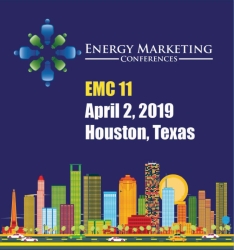|
|
|
|
|
Report: Maryland Households On Competitive Retail Supply Paid $255 Million More Than SOS From 2014-17
The following story is brought free of charge to readers by EC Infosystems, the exclusive EDI provider of EnergyChoiceMatters.com
A report published by The Abell Foundation said that, "from 2014 to 2017, Maryland households have been paying tens of millions of dollars more per year in aggregate to third-party electricity suppliers -- about $255 million more in all than if they had stayed with their utility’s supply offer."
The report, filed by the Office of People's Counsel with the PSC in a proceeding concerning energy assistance, found that "Maryland homeowners" served by a competitive retail electric supplier:
• Saved about $20 million in 2010 as compared to their utility’s offer
• Came out about even in 2011, 2012, and 2013
• Overpaid about $255 million from 2014 to 2017, ranging from a high of $77 million in 2014 to a low of $50 million in 2016. The overpayment amount was about $59 million in 2017.
The report further said, "Only about 3 percent of the 387,000 households, on average, came out ahead in 2017. The other 97 percent of households on third-party supply -- 17 percent of all Maryland households -- paid an average of about $154 more for third-party supply as compared to their utility’s Standard Offer Service rates."
"In the worst case, a third-party supplier charged about 5,000 households an average rate that was 76 percent more than the Standard Offer Service rate," the report said
The report was based on EIA 861 data
Separately, OPC recently conducted its own analysis which said that Maryland residential electricity customers on third-party supply were losing about $34.1 million per year on electricity costs and $20.7 million per year on natural gas costs relative to the costs of Standard Offer Service. OPC's analysis compared actual posted fixed offers from suppliers and compared them to SOS rates
The Abell report said, "This adverse outcome for consumers, despite a large number of suppliers, indicates that Maryland’s third-party supply residential market has become dysfunctional; in its current state, it is no longer fulfilling the purpose of the law -- to benefit all consumer classes."
The authors of the Abell report also interviewed and reviewed the experience of 40 low-income customers
The Abell report said, "Aggregating BGE billing data for the 40 low-income clients revealed that these households’ rates were on average 51 percent higher for electricity and 78 percent higher for natural gas as compared to BGE’s Standard Offer Service rates," the report said
The report cited an actual bill from a low-income BGE account holder who switched to a third-party supplier. During January 2018, this customer’s electricity supply rate of $0.1559 per kWh was 90 percent more than BGE’s Standard Offer Service rate of $0.08218 per kWh, the report said
The report, citing POR, said that "Third-party suppliers are incentivized to charge high rates because they no longer bear the risk of nonpayment -- a phenomenon known in economics as 'moral hazard.'"
The Abell report recommended the following:
1. The PSC should be required to annually collect and report actual bill-level data for consumers by zip code. These data would reveal the scope of overpayments if they continue to exist, or estimate customer savings, if any, and would verify whether they disproportionately affect low-income households as our data and analyses from other states suggest.
2. Residential customers who want third-party supply should only be served by some form of aggregated supply that would ensure lower costs. We [the report authors] are not recommending the end of third-party supply for the residential sector but are advocating for the end of marketing to and contracting with households for third-party supply on an individual basis with a very restricted exception of 100 percent renewable energy procurement. There are tested approaches to such aggregated contracts. For example, Ohio and Delaware have such programs that guarantee savings to low-income households
3. A comprehensive program that uses the competitive supply market to ensure lower costs for all low-income households getting assistance should be put into place. All other households, including non-low-income households, should be allowed to opt-in to such programs, if they choose.
4. Variable rate contracts should not be permitted for residential customers.
5. Consumers should be allowed to terminate third-party energy supply contracts without early termination fee
6. For consumers who choose third-party supply, utility bills should prominently display that the customer saved Y dollars or paid X dollars extra for that month by being on third-party supply.
7. Some marketing practices to low-income households in Baltimore appear to be similar to those condemned by the PSC in 2014. We [the report authors] strongly recommend that the PSC initiate a broad and thorough investigation into marketing practices affecting low-income households and also more actively enforce current regulations
Link to Abell report
Link to OPC price analysis
ADVERTISEMENT Copyright 2010-16 Energy Choice Matters. If you wish to share this story, please
email or post the website link; unauthorized copying, retransmission, or republication
prohibited.
Report Recommends Ending Individual Residential Choice, Limiting Choice To Aggregations
Report Says 5,000 Customers Of Retail Supplier Paid 76% More Than SOS
December 26, 2018
Email This Story
Copyright 2010-17 EnergyChoiceMatters.com
Reporting by Paul Ring • ring@energychoicematters.com
NEW Jobs on RetailEnergyJobs.com:
• NEW! -- Business Development Manager -- Retail Supplier -- Houston
• NEW! -- Business Development Manager
• NEW! -- Regulatory & Compliance Analyst -- Retail Supplier
• NEW! -- Sales Quality & Training Manager -- Retail Energy
• NEW! -- Sales Analyst / Senior Level -- Retail Supplier
Houston
• NEW! -- Sales Director -- Houston
• NEW! -- Director of Sales
• NEW! -- Energy Sales Representative
|
|
|
|











